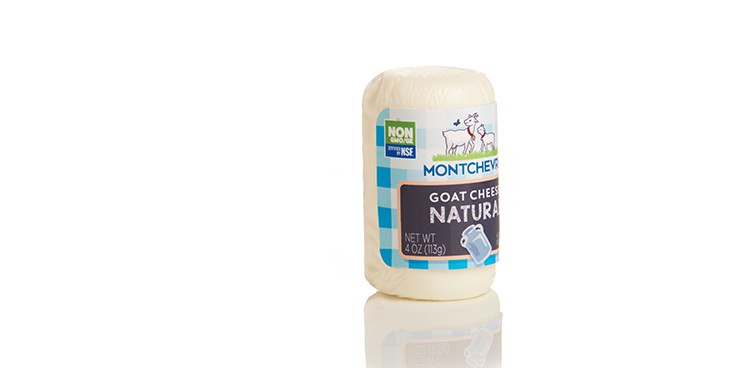
Continuing its pursuit to become 100 percent GMO-free, Montchevre announced plans to grow its non-GMO network in 2017 by 20 to 25 farms. These soon-to-be GMO-free farms are located primarily in Iowa and will join 46 others that have already completed the transition to non-GMO. The Wisconsin-based company, which is one of the top goat cheese manufacturers in the US, receives its goat milk from a network of more than 350 Midwestern family farms.
Montchevre took its first major step toward its GMO-free commitment in 2016 when it released a Non-GMO True North Certified line of their bestselling Goat Cheese Logs. As a result, it saw a 40 percent jump in non-GMO goat cheese sales, a number that the company says exceeded expectations. “We are excited to see such strong consumer interest in non-GMO goat cheese since we introduced Montchevre’s non-GMO Fresh Goat Cheese Logs approximately six months ago,” said Montchevre co-founder Arnaud Solandt in a recent press release.
Demand for non-GMO products has surged in recent years and sales are now well in the billions; as of September 2016, annual sales of goods verified by The Non-GMO Project (the major third-party non-GMO verification organization in the US) were at nearly $21 billion. The group tells culture that in 2016, it saw the highest increase in interest in verification of animal-derived products, and that “market demand” was the main driver for dairy businesses seeking its non-GMO verification.
More consumers are learning about GMOs now that transparency has become a national legal matter. In July, former President Obama signed the National Bioengineered Food Disclosure Law, ordering the USDA to devise a mandatory labeling system for all food products containing genetically modified ingredients by July 2018. Also in 2018, Whole Foods will require producers to disclose GMOs on labels if they want their products on store shelves.
All that being said, don’t be surprised if you see more wedges and wheels free of genetically modified organisms at your local curd counter in the near future. In the second half of 2016 alone, Vermont Creamery released its first non-GMO verified cheese and in November, Bothwell Cheese became the first Canadian manufacturer to receive Non-GMO Project verified status. No matter what side of the contentious GMO debate you’re on, there’s no question that it will continue to be a hot topic of discussion for the foreseeable future.



